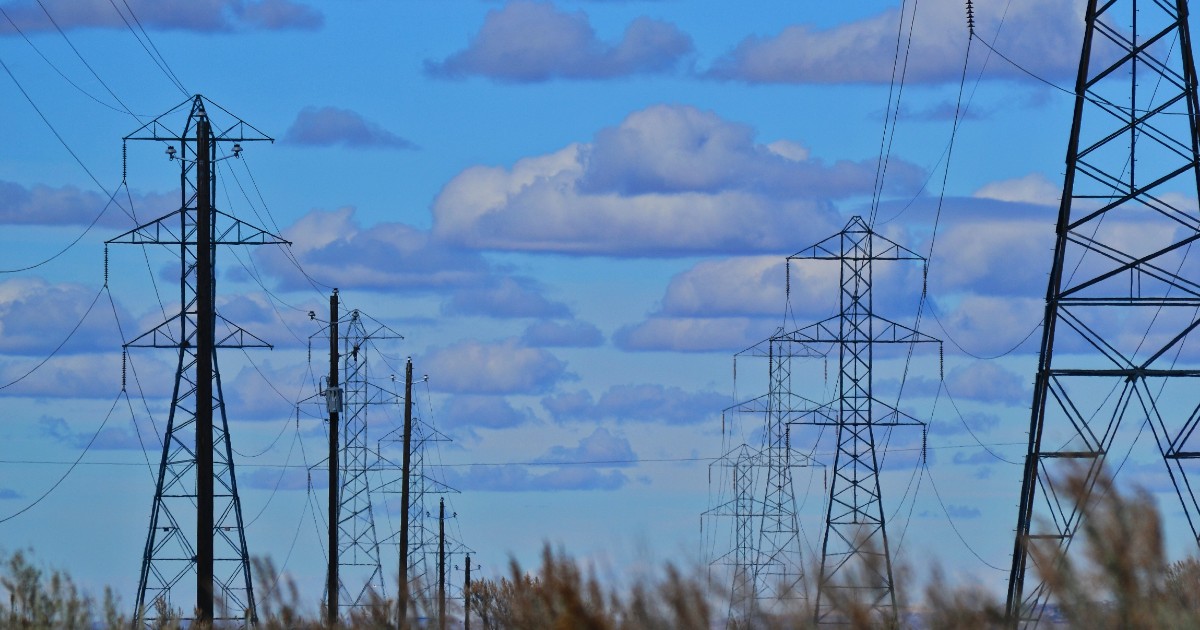Emerging Trends of Communications Infrastructure in Future Smart Grid
A special issue of Applied Sciences (ISSN 2076-3417). This special issue belongs to the section "Electrical, Electronics and Communications Engineering".
Deadline for manuscript submissions: closed (30 November 2023) | Viewed by 2668

Special Issue Editors
2. KAIST Institute for Information Technology Convergence, 291 Daehak-ro, Yuseong-gu, Daejeon 34141, Republic of Korea
Interests: edge computing; Internet of Things; green networking; smart grid
Special Issues, Collections and Topics in MDPI journals
2. GS-APAC, Kellogg Brown and Root, Melbourne, VIC 3004, Australia
Interests: smart grid communications; vehicular communication system
Special Issues, Collections and Topics in MDPI journals
Interests: demand-side energy management optimization; demand–supply energy balancing; distributed energy resources (DERs) management technology; energy broker mechanism for small-scale DERs; low-end standard platform for factory energy management system (FEMS)
Special Issues, Collections and Topics in MDPI journals
Special Issue Information
Dear Colleagues,
The prime objective of a smart grid is to enable existing power systems to be more efficient (cost-effective, eco-friendly, and reliable, etc.) by integrating communication, sensing, controlling, and cloud/edge computing assisted decision-making capability. Unlike the traditional power grid, a smart grid facilitates two-way communication between the electricity consumers and utility companies. It provides the opportunity to integrate distributed energy resources, including renewable energy resources. Different sensors and intelligent electronic devices connected with smart grids can collect various information and send the information through their communication interface for further processing, thereby paving the way for efficiently monitoring and controlling the smart grid. Having communication infrastructure that is reliable in a smart grid contributes not only to ensuring the safe operation of the smart grid but also to improving resource utilization and the power supply quality as well as proliferation of various smart grid applications, including distributed energy trading. Researchers are encouraged to submit original research contributions that explore the emerging trends of various communications aspects of future smart grids. Potential topics of interest for this Special Issue include, but are not limited to, the following:
- Network architecture and communication protocols for future smart grids.
- Cyber security in smart grids (attacks, methods, prospects, and countermeasures).
- Application of blockchain technology for smart grid communications security and resource management.
- Cloud/fog/edge/dew computing assisted reliable smart grid.
- Machine learning and artificial intelligence assisted smart grid network operation and management.
- Machine learning and artificial intelligence assisted communication infrastructure and data processing for demand response, orchestrated operation, and energy trading.
Dr. S. H. Shah Newaz
Dr. Nazmus Shaker Nafi
Dr. Yoon-Sik Yoo
Guest Editors
Manuscript Submission Information
Manuscripts should be submitted online at www.mdpi.com by registering and logging in to this website. Once you are registered, click here to go to the submission form. Manuscripts can be submitted until the deadline. All submissions that pass pre-check are peer-reviewed. Accepted papers will be published continuously in the journal (as soon as accepted) and will be listed together on the special issue website. Research articles, review articles as well as short communications are invited. For planned papers, a title and short abstract (about 100 words) can be sent to the Editorial Office for announcement on this website.
Submitted manuscripts should not have been published previously, nor be under consideration for publication elsewhere (except conference proceedings papers). All manuscripts are thoroughly refereed through a single-blind peer-review process. A guide for authors and other relevant information for submission of manuscripts is available on the Instructions for Authors page. Applied Sciences is an international peer-reviewed open access semimonthly journal published by MDPI.
Please visit the Instructions for Authors page before submitting a manuscript. The Article Processing Charge (APC) for publication in this open access journal is 2400 CHF (Swiss Francs). Submitted papers should be well formatted and use good English. Authors may use MDPI's English editing service prior to publication or during author revisions.
Keywords
- smart grid
- network architecture
- communication protocols
- smart grid cyber security
- demand response
- energy trading
- network operation
Benefits of Publishing in a Special Issue
- Ease of navigation: Grouping papers by topic helps scholars navigate broad scope journals more efficiently.
- Greater discoverability: Special Issues support the reach and impact of scientific research. Articles in Special Issues are more discoverable and cited more frequently.
- Expansion of research network: Special Issues facilitate connections among authors, fostering scientific collaborations.
- External promotion: Articles in Special Issues are often promoted through the journal's social media, increasing their visibility.
- e-Book format: Special Issues with more than 10 articles can be published as dedicated e-books, ensuring wide and rapid dissemination.
Further information on MDPI's Special Issue polices can be found here.







